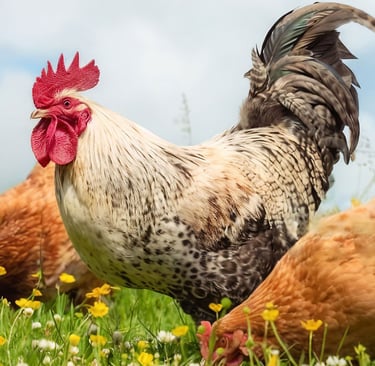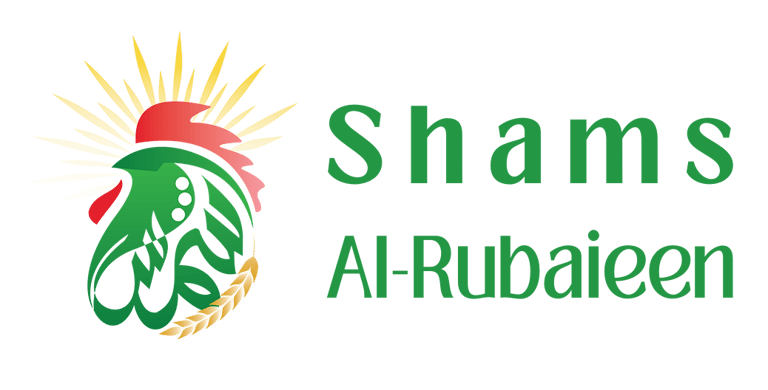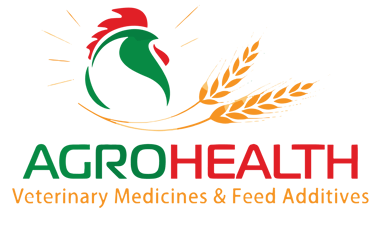Best Practices in Poultry Farm Management
Effective poultry farm management is essential for maximizing production, ensuring animal welfare, and maintaining profitability.
POULTRY
Dr. Osama Abbas Ayoob
3/5/20233 دقيقة قراءة
Effective poultry farm management is essential for maximizing production, ensuring animal welfare, and maintaining profitability. Adopting the right practices not only enhances productivity but also safeguards the health of the flock and the sustainability of the operation. Below are key strategies that form the foundation of successful poultry farm management.
1. Implement Robust Biosecurity Measures
One of the most critical aspects of poultry management is preventing disease outbreaks. A strong biosecurity plan includes:
Controlled Access: Limit entry to the farm and ensure that visitors and workers follow strict hygiene protocols.
Sanitation Protocols: Regularly clean and disinfect housing, equipment, and transport vehicles.
Isolation of New Arrivals: Quarantine new birds before introducing them to the main flock.
Disease Monitoring: Implement routine health checks and vaccination programs to minimize disease risks.
These measures help protect the flock and reduce potential economic losses due to illness.
2. Optimize Feeding and Nutrition
Feeding plays a vital role in the growth and productivity of poultry. Best practices include:
Balanced Diets: Develop feed formulas that meet the nutritional needs of different bird types and growth stages.
Quality Ingredients: Use high-quality feed ingredients to ensure optimal growth and efficient feed conversion.
Regular Monitoring: Track feed consumption and adjust diets based on performance and health observations.
Water Management: Provide clean, accessible water at all times to support digestion and overall health.
Proper nutrition contributes to better health, improved productivity, and higher quality products.
3. Implement Effective Health and Disease Management
Maintaining a healthy flock is paramount. Key practices include:
Vaccination Programs: Establish a comprehensive vaccination schedule tailored to the local disease profile.
Regular Health Assessments: Monitor bird health through frequent inspections and timely veterinary consultations.
Prompt Treatment: Quickly isolate and treat any birds showing signs of illness to prevent the spread of disease.
Record Keeping: Maintain detailed health records to track the effectiveness of health interventions and identify trends.
A proactive approach to health management helps minimize losses and ensures consistent production.
4. Utilize Technology and Automation
Modern technology plays a significant role in enhancing farm management efficiency:
Automated Feeding Systems: Use technology to distribute feed evenly, reducing labor costs and minimizing waste.
Environmental Controls: Implement systems to monitor and adjust temperature, humidity, and ventilation automatically.
Data Management: Leverage farm management software to track performance metrics, monitor bird growth, and optimize production.
Remote Monitoring: Use sensors and IoT devices to monitor farm conditions in real time, ensuring quick responses to any issues.
Embracing technology improves operational efficiency and provides valuable insights for continuous improvement.
5. Ensure Proper Housing and Animal Welfare
Creating a comfortable and healthy environment for poultry is key to success:
Adequate Space: Provide sufficient space for birds to move, reducing stress and the risk of injury.
Ventilation: Ensure proper air circulation to prevent respiratory problems and maintain a consistent environment.
Lighting and Temperature: Adjust lighting and temperature to match the birds’ needs, promoting optimal growth and production.
Clean Environment: Regularly clean housing areas to prevent the buildup of waste and reduce the risk of disease.
A focus on animal welfare not only improves production outcomes but also enhances the reputation of the farm.
6. Adopt Sustainable and Eco-Friendly Practices
Sustainability is becoming increasingly important in modern poultry farming:
Waste Management: Implement recycling and waste treatment processes to manage manure and other byproducts effectively.
Energy Efficiency: Use energy-efficient systems and renewable energy sources to reduce operational costs and environmental impact.
Water Conservation: Employ water-saving technologies and practices to ensure efficient water use.
Sustainable Sourcing: Source feed and supplies from sustainable producers whenever possible.
Sustainable practices help reduce environmental impact while ensuring long-term operational viability.
7. Focus on Continuous Training and Improvement
Investing in ongoing education for farm staff is essential:
Training Programs: Regularly train employees on best practices, new technologies, and updated protocols.
Performance Reviews: Conduct periodic assessments to identify areas for improvement and provide feedback.
Industry Updates: Stay informed about new research, trends, and technologies in poultry farming.
Collaboration: Encourage collaboration and knowledge sharing among team members to foster a culture of continuous improvement.
Empowered and knowledgeable staff are the backbone of any successful poultry operation.
Conclusion
Implementing best practices in poultry farm management is vital for maintaining high productivity, ensuring animal welfare, and achieving sustainable growth. From robust biosecurity and optimized nutrition to the adoption of advanced technology and sustainable practices, each strategy plays a critical role in the overall success of the operation. By focusing on these key areas, poultry farmers can build a resilient and profitable business that meets market demands while contributing to food security and sustainable agriculture.






